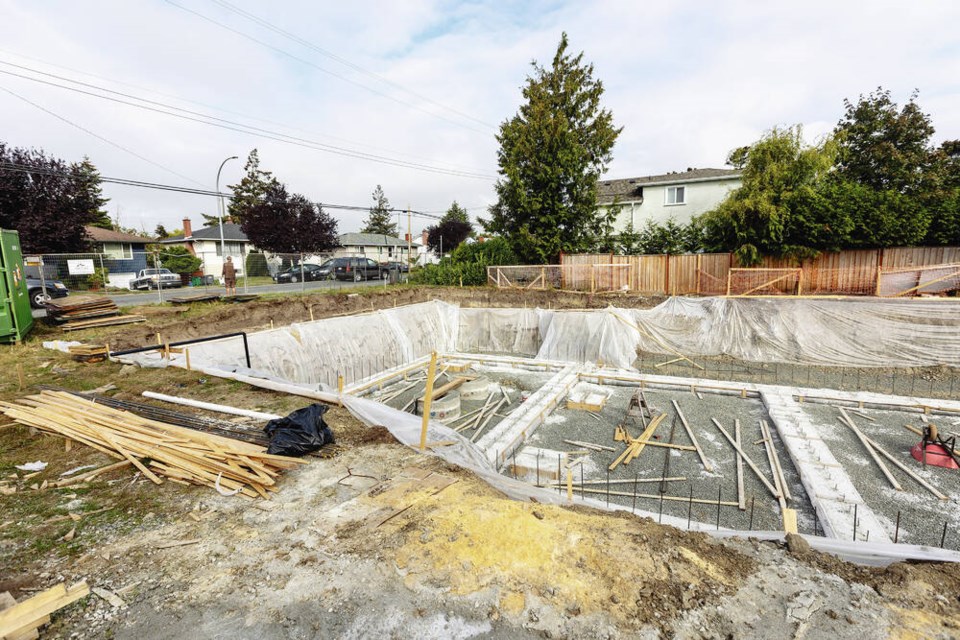Saying the district is dealing with a housing crisis not a parking crisis, Saanich council took steps Monday to reduce parking requirements for new developments in hopes of speeding up the housing-approval process.
Council voted 7-2 in favour of amending the zoning bylaw to reduce the minimum number of parking spaces required for housing projects of fewer than 12 units to one stall per unit. Large projects would be required to provide no more than 1.5 parking stalls per unit.
Previously apartments had to provide 1.5 parking stalls per unit, while attached housing had to provide two stalls per unit.
Saanich Mayor Dean Murdock said the bylaw amendments, which were given first reading Monday night, simply draft into law the district’s current practices.
He said council’s view over the last decade has been that existing parking requirements are overly high and council has been prepared in most cases to vary them as needed.
Developers of larger projects would also have to provide a transportation demand management plan, ensuring enough alternatives are provided so residents use transit or car-share rather than having a spillover of parked cars on neighbouring streets.
“There’s going to be some parking. We’re talking about not building excessive parking that people don’t need,” said Coun. Teale Phelps Bondaroff, noting it’s unlikely any developer with a large project to sell would offer no parking on site.
Phelps Bondaroff said the amendments will improve flexibility for developers and make buildings more affordable by avoiding the costs of excavating for underground parking, which can cost $75,000 to $100,000 per parking stall.
“And there’s an environmental impact as well,” he said. “Obviously, we want to encourage folks to use different modes of transportation other than personal vehicles … but on top of that we also want to have more green space and fewer impermeable surfaces and more connected communities.”
The new rules also standardize transportation demand management – instead of individual demand studies done for each project – and will require developers to choose from a menu of demand measures.
Projects with more than 12 units will have to choose at least two demand management packages that will include B.C. Transit, cycling and car-share amenities.
As a further streamlining measure, district staff will approve permits rather than council having to deal with it.
Opposing the amendments were councillors Judy Brownoff and Nathalie Chambers.
Brownoff said the changes don’t tackle the entire problem and she would prefer to have a comprehensive review of the parking issue.
Chambers raised the concern about what tradespeople, who need a place for their work vehicles, will be forced to do.
Saanich staff said the rules don’t direct developers not to have parking, but provide some flexibility in terms of the number of parking stalls that must be provided.
Council also passed a motion Monday night to ensure car-share options, which are to be included in the transportation demand management program, are retained in perpetuity in new developments. As originally conceived, the plan had been to allow that requirement to expire after three years.



